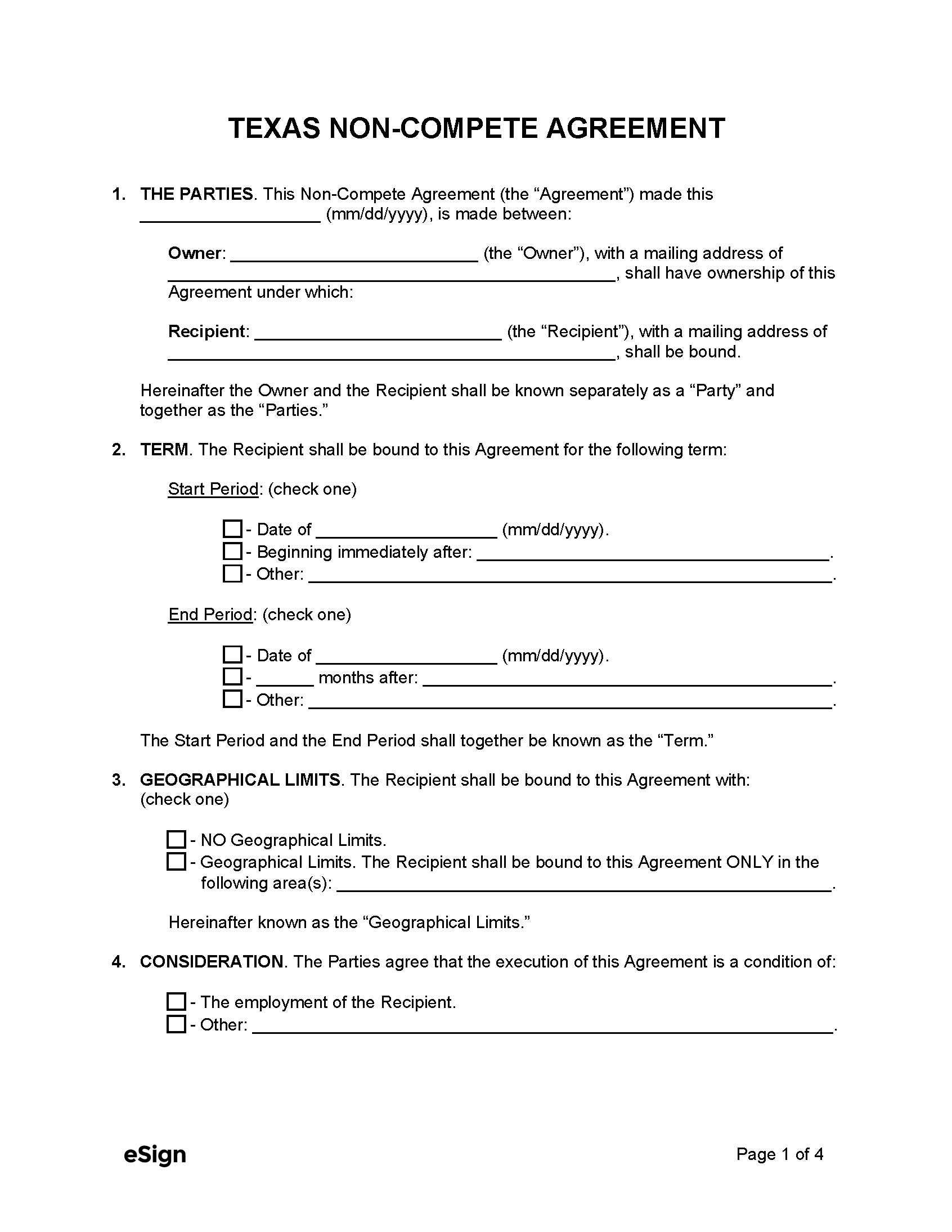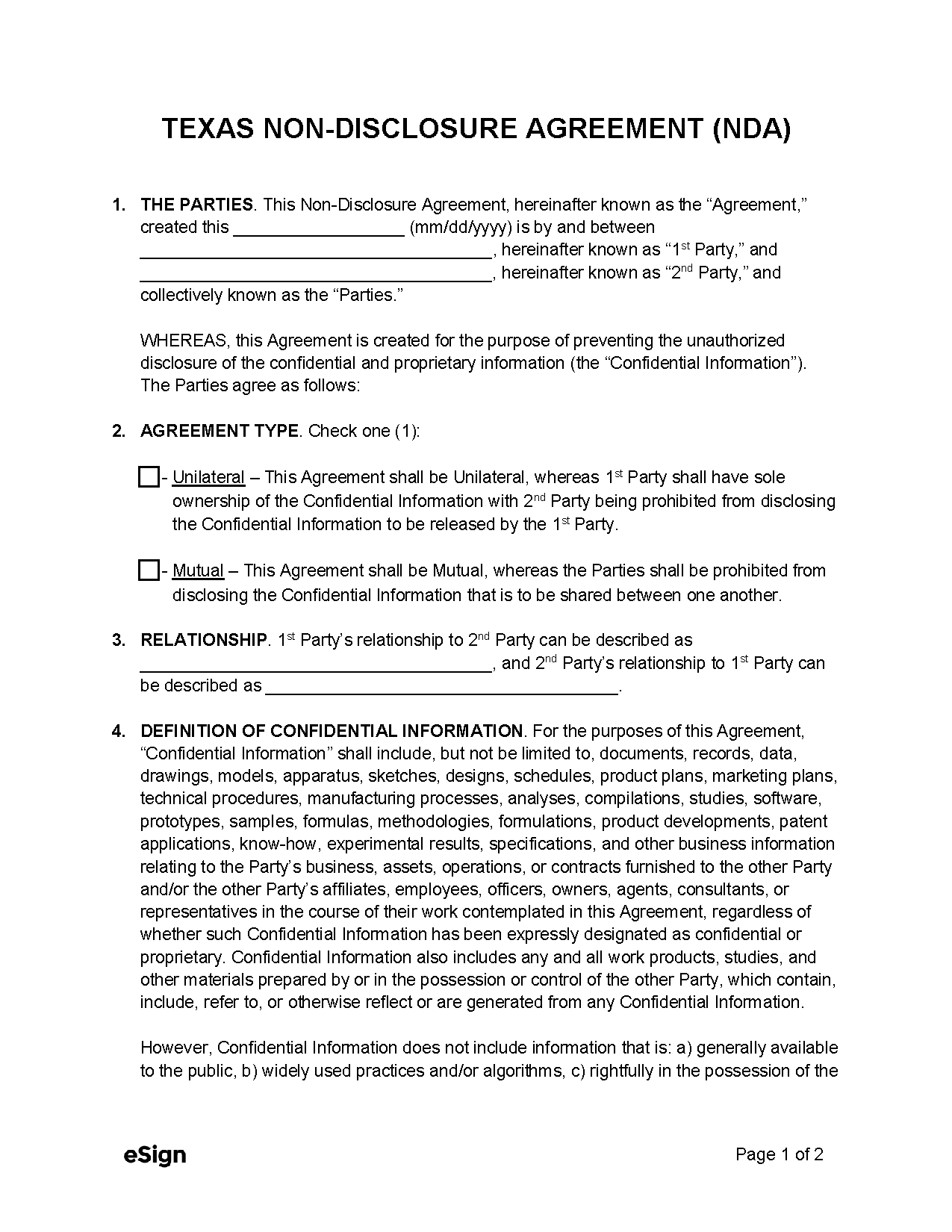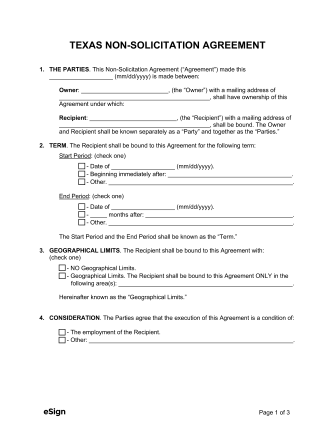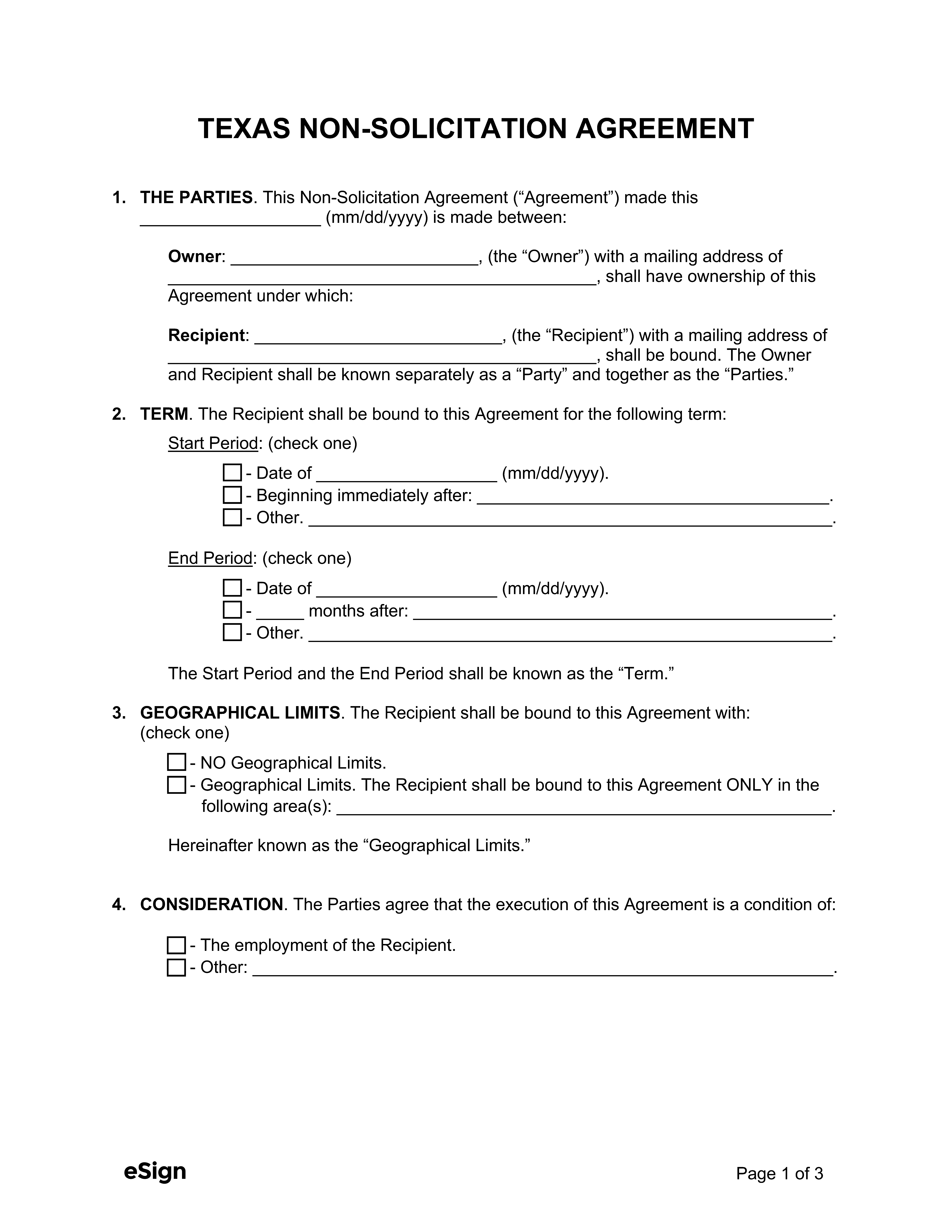A properly executed contract should include how long the restrictions will be in effect, the geographical area where they will apply, and what the employee will receive as consideration for signing.
- Statutes: § 15.50, § 15.51, § 15.52
- Legally Enforceable? Yes, non-solicitation agreements are enforceable and governed by non-compete statutes (Marsh USA Inc. v. Cook, 54 S.W.3d (Tex. 2011)).
- Requirements (§ 15.50(a)): To be enforced, a restrictive contract must:
- Be reasonably limited in time, geographical area, and scope;
- Be part of or ancillary to another enforceable agreement;
- Only be as restrictive as necessary to protect the employer’s business interests or goodwill.
- Exceptions: A physician may not be asked to enter into a restrictive agreement unless it adheres to the requirements outlined in § 15.50(b).
Related Forms (2)

Download: PDF, Word (.docx), OpenDocument

Download: PDF, Word (.docx), OpenDocument

